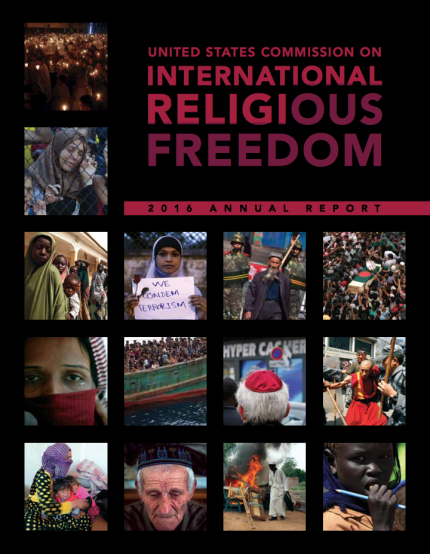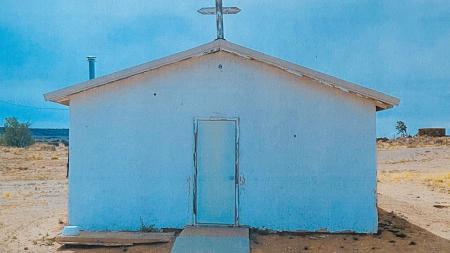Report Details Religious Persecution Worldwide

United States Commission on International Religious Freedom
The issue of religious persecution has become increasingly complex in recent years as more and more nations around the world are falling into chaos and as terrorist groups such as the Islamic State have come on the scene.
“We are finding that governments are not able to put a stop to religious persecution or to take control of it because the government in many areas is getting weaker and non-state actors are getting stronger,” said Thomas J. Reese, chair of the United States Commission on International Religious Freedom (USCIRF).
Speaking in a conference call to groups across the U.S., including several people at the Grand Rapids, Mich., office of the Christian Reformed Church, Reese added that the swelling numbers of people being persecuted because of their faith is becoming more apparent every day.
“Clearly millions of people are facing tremendous pressure around the world. They can’t live out their faith without fear of violence or intimidation,” he said.
“All of this is associated with the worst calamity of our time—65 million people have been internally displaced or become refugees, and often for religious reasons.”
Many of these people have fled conflicts in the Middle East, especially in Iraq, Afghanistan, and Syria, and no religious group has been immune from the persecution, said Reese.
The conference call in Grand Rapids was sponsored by the Office of Social Justice, which was asked by Synod 2016 to collect and provide up-to-date information to the CRC about religious persecution and liberty on an ongoing basis. Synod made this request in June after receiving and discussing a study committee report on the issue .
Although the Islamic State is the cause of much persecution today, it is not alone. Similar extremist groups such al-Qaeda, the Taliban, and Boko Haram continue to operate in countries around the world. At the same time, the governments in many countries such as Russia, China, and Iran continue to be sources of persecution, said Reese.
“The world cannot afford to ignore the plight of the persecution of religious minorities,” he said. “We need to make religious freedom a high priority in nations, forcing the police and military in countries to step in and allow people the freedom to practice their religion.”
Reese said the USCIRF recently released its 2016 annual report on international religious freedom. The report, he said, documents serious religious freedom violations in more than 30 countries, makes country-specific recommendations, and assesses the U.S. government’s implementation of the International Religious Freedom Act.
Topping the list of “countries of particular concern” is Burma (or Myanmar), where the Muslim Rohingya people are being killed and displaced, said Reese, who is a Roman Catholic priest.
“While Burma is undergoing a welcome transition to democratic rule, the Rohingyas still suffer. Unchecked extremism from the Buddhist majority make hundreds of thousands of Rohingyas easy targets.”
Iran is also on the list, particularly for persecuting people of the Bahá'í faith as well as Christian converts and Sunni and Sufi Muslims.
Saudi Arabia is on the list as well. “In Saudi Arabia there is no single non-Muslim house of worship,” said Reese.
The Central African Republic, which has descended into near anarchy, is seeing fierce fighting and persecution between Muslim and Christian militias. Muslims, said Reese, have been especially hard hit. They have been driven from the country, and their mosques have been destroyed.
In Syria, the government and rebel groups continue their persecution of religious minorities, especially Shia Muslims, which has caused some 18 million refugees to flee the civil war there.
Egypt’s government has made progress, said Reese, but it is failing to prosecute those who in recent years attacked and persecuted Coptic Christians and others. In Iraq, Shia Muslims and groups of Christians have been wiped out or forced to leave the country as a result of fighting, said Reese.
In Russia, many groups, except the state-sponsored Russian Orthodox Church, are under siege. Meanwhile, Hindu nationalists are persecuting Christians and Muslims in India.
“Often religious leaders are the ones causing the problems and leading the violence against minorities, and this is scandalous,” said Reese.
With persecution on the rise in so many countries, the U.S. needs to redouble its efforts to address the problem, said Reese.
“Respecting religious freedom around the world should be a national strategy,” he said.
“We also need to encourage interfaith dialogue so we can get a better understanding of one another and build more peaceful relationships.”


